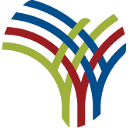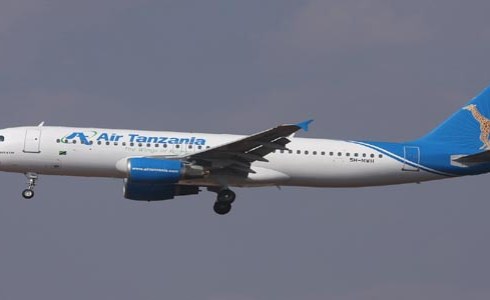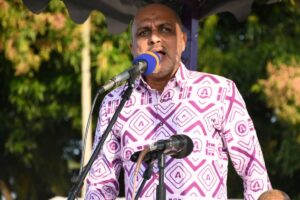Kilimanjaro, Tanzania — In the sun-scorched soils of Moshi, where every drop of rain counts, two female farmers have defied the odds through technology. Mwajuma Rashid Njau and Mumii Rajab, once locked in a daily struggle to survive, have found a mobile phone their best ally.
For years, farming was a way of life they struggled to master. Their fields, a patchwork of red earth and wilting crops, symbolized hardship rather than prosperity. Pests came with the seasons, the soil quality deteriorated, and their harvests barely provided enough to feed their families. But now, a simple app–Kiazi Bora–has changed everything.
On a sweltering afternoon, Njau was out in the field, staring helplessly at the rows of wilting sweet potatoes ravaged by pests, when he realized things could be different. She had no idea how to stop it–until she opened the Kiazi Bora app on her phone.
“This app has changed everything,” Njau, 38, says with a tired but hopeful smile. “I didn’t know where to start, but now I can check my phone, and it tells me exactly what to do.”
The Kiazi Bora app, designed specifically for small-scale farmers like Njau and Rashid, focuses on helping them grow nutritious orange-fleshed sweet potatoes (OFSP) to feed their families and earn income. The app offers simple instructions on planting and pest control to farmers with little education.
The app, Kiazi Bora (“quality potatoes” in Kiswahili), wasn’t just another farming tool–it was powered by cutting-edge AI voice technology. And for the first time, it spoke their language.
Creating Kiazi Bora wasn’t easy. Kiswahili, a language spoken by over 200 million people, presented unique challenges for AI developers. The problem? There simply wasn’t enough high-quality voice data to train the technology.
“One of the biggest challenges has been the availability of diverse, high-quality data,” said EM Lewis-Jong, Director of Mozilla Common Voice, a global project dedicated to making AI accessible to speakers of underrepresented languages.
“Kiswahili is a diverse language with many regional variants, and our tools are primarily designed for English, which complicates things further.”
To solve this issue, SEE Africa, the nonprofit behind Kiazi Bora, turned to Mozilla’s Common Voice platform. Unlike other AI data collection methods, which often rely on scraping the web or underpaid gig workers, Common Voice harnesses the power of community. “We use a crowd-sourced model where people voluntarily contribute their voice data,” explained Lewis-Jong. “This ensures that the data reflects the true diversity of the language, including different accents and dialects.”
This community-driven approach has already seen tremendous success. In Tanzania, the Kiazi Bora app is now used by over 300 women, empowering them with knowledge on how to grow and market their crops. “These women are learning in Kiswahili, their first language, which makes a huge difference,” noted Gina Moape, Community Manager for Common Voice. “We’ve seen firsthand how access to information in their own language improves both their nutrition and their ability to participate in economic activities.”
But Kiazi Bora is just one example of how voice-enabled technology can make a real impact.
For Mozilla, these projects reflect a broader vision: democratizing AI so that it serves everyone, not just speakers of dominant languages. “If data creation is left to for-profit companies, many of the world’s languages will be left behind,” said Lewis-Jong. “We want a world where people can create the data they need, capturing their language as they experience it.”
That’s why Mozilla’s Common Voice is not just a tool but a movement. Its open-source platform allows communities to collect and contribute voice data that anyone can use, fostering local innovation across Africa. “We’re particularly excited about the potential for African languages,” Lewis-Jong added. “Our long-term vision is to integrate more African languages into global voice recognition technologies, and Common Voice is a critical part of making that happen.”
For Rashid, 42, who had once lived in uncertainty, the app was a useful tool. “Before, I felt powerless,” she recalls. “When pests attacked, I would just watch as my crops withered. Now, I can fight back. I know what to do.”
Both women have honed their skills and improved crop yields. The app taught them how to manage soil health, optimize planting schedules, and handle pest outbreaks.
Their orange-fleshed sweet potatoes stand out in contrast to the dusty earth, a sign of resilience and renewal.
The duo, who were entangled in a cycle of poverty, now speak with pride about their success.
“We’ve learned to control our future,” Njau says.
Through Kiazi Bora, Njau and Rajabu have unlocked opportunities to improve their livelihoods and break free from poverty.
Njau, who had to drop out of school when her family moved to a remote village, calls the app her “teacher.” She explains, “I never completed school, but this app has taught me everything I need to know about farming. It’s like a teacher that’s always there when I need it.”
The voice-enabled Kiswahili features make it user-friendly. “The app speaks to me in a language I clearly understand,” Njau says.
Through the app, Njau and Rajabu learned how to process potatoes into flour and pastries, which fetch a higher market price.
Rajabu explains, “I didn’t know you could make flour from sweet potatoes or that you could sell it for more money. Now, I have customers who buy the flour because it lasts longer than fresh potatoes.” This new skill has allowed them to diversify their income.
In just a year, their income increased from zero to USD 127 per month. The extra income has enabled them to take care of their families, reinvest in their farms, and secure a better future. “With the money I’ve made, I’ve been able to send my children to school and even save some for emergencies,” says Njau.
The potatoes, which are rich in vitamins, have helped them fight malnutrition in their communities. While neither Njau nor Rajabu had children with malnutrition, they both knew families who struggled with it. Thanks to the app, they now understand the importance of incorporating OFSP into their daily meals to ensure their children stay healthy.
Rajabu was quick to share the app with her relatives. “I told my sister about it, and now she’s also growing OFSP. Her children are healthier, and she’s even making money from selling sweet potato flour,” she says proudly.
For both women, the app has empowered them as farmers, businesswomen and community leaders. “I feel confident now,” Rajabu says. “This app has changed my life, and I know it can help other women like me.”
Both Njau and Rajabu see immense potential for Kiazi Bora to help other rural women. They advocate for expanding the app beyond OFSP farming to include other crops like vegetables and edible roots, as this could further diversify their income streams and enhance food security in their communities.
“Women in rural areas need this technology,” Rajabu emphasizes. “We need to make sure that we can feed our families and earn better incomes.”
IPS UN Bureau Report
Source: allafrica.com













